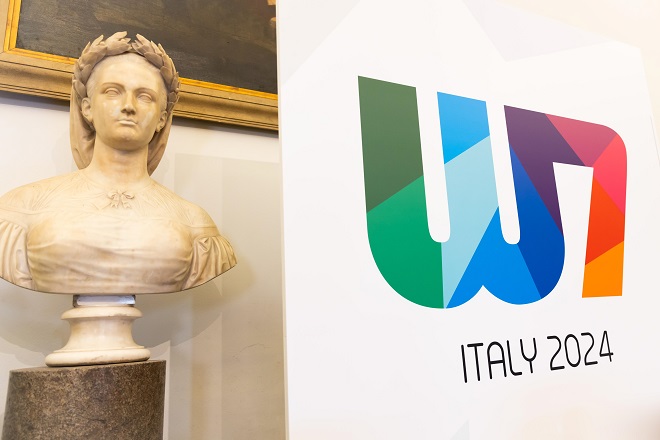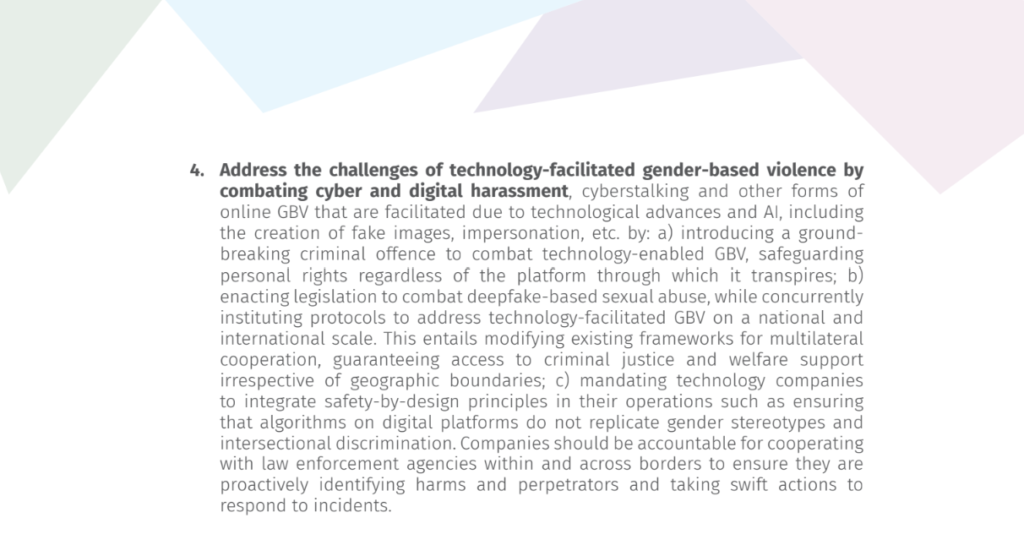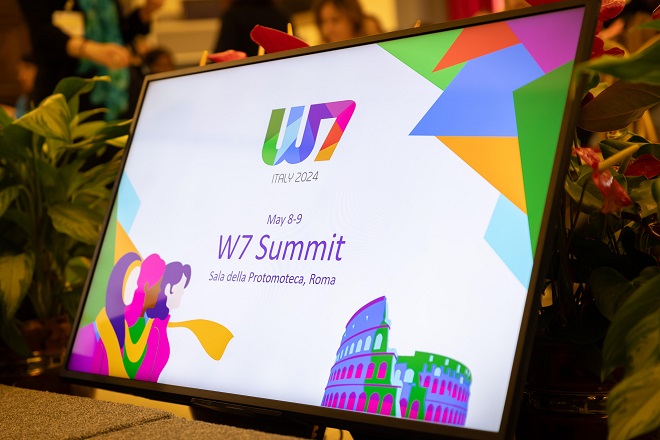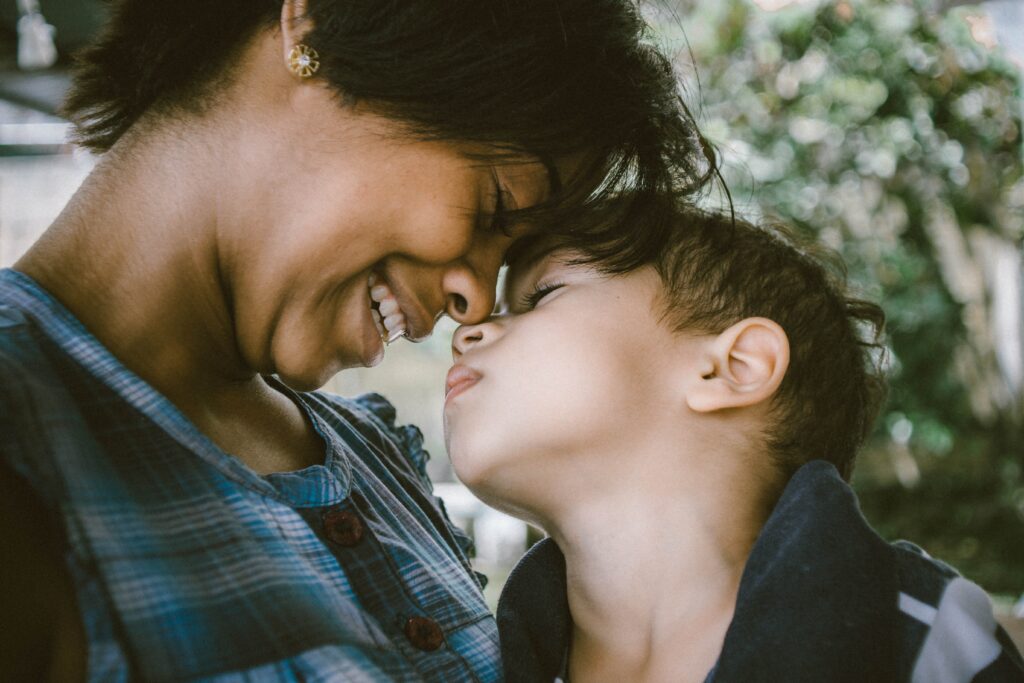As we approach the 2024 G7 Summit, the Women7 (W7) Communiqué stands as a crucial testament to the collective voices advocating for gender equality and justice. I am honored to represent the Bullyid App and NMA Foundation as a W7 Advisor, focusing on the prevention of technology-facilitated gender-based violence and addressing deepfake image abuse. Our efforts, alongside those of numerous feminist civil society organizations worldwide, culminate in the W7 Policy Communiqué—an ambitious set of recommendations aimed at achieving a sustainable and gender-just transformation.

Addressing Technology-Facilitated Gender-Based Violence
In our increasingly digital world, technology-facilitated gender-based violence (GBV) has emerged as a pervasive issue that demands urgent attention. The W7 Communiqué highlights several key measures to combat this modern form of violence:
Introducing Groundbreaking Criminal Offenses
- The rapid advancement of technology has provided new avenues for perpetrators to harass, stalk, and abuse individuals online. To address this, the W7 recommends introducing groundbreaking criminal offenses specifically targeting technology-enabled GBV. These offenses should safeguard personal rights regardless of the platform through which the violence occurs.
Enacting Legislation to Combat Deepfake-Based Sexual Abuse
- Deepfake technology, which allows the creation of realistic but fake images and videos, has been increasingly misused for sexual abuse and exploitation. The W7 calls for comprehensive legislation to criminalize deepfake-based sexual abuse and establish protocols to address technology-facilitated GBV on both national and international scales. This includes modifying existing frameworks for multilateral cooperation to ensure access to criminal justice and welfare support across geographic boundaries.
Mandating Safety-by-Design Principles for Technology Companies
- Technology companies play a crucial role in preventing online GBV. The W7 advocates for mandating these companies to integrate safety-by-design principles in their operations. This includes ensuring that algorithms on digital platforms do not replicate gender stereotypes and intersectional discrimination. Companies must be accountable for cooperating with law enforcement agencies to identify harms and perpetrators proactively and respond swiftly to incidents.

The Scope of the Problem
Cyber Harassment and Digital Violence
- Lack of Common Definitions: The absence of a common definition of technology-facilitated violence against women and girls leads to a lack of comparable data at a global level. However, available evidence collected at country and regional levels confirms high prevalence rates.
- European Union: One in 10 women in the European Union has experienced cyber-harassment since the age of 15, including receiving unwanted and/or offensive sexually explicit emails or SMS messages, or offensive and/or inappropriate advances on social networking sites.
- Arab States: A regional study found that 60% of women internet users in the Arab States had been exposed to online violence in the past year.
- Uganda: In 2021, about half of women (49%) reported being involved in online harassment at some point in their lifetime.
- South Korea: According to a 2016 survey by the Korean National Human Rights Commission, 85% of women experienced hate speech online.
Deepfake Proliferation
Research from Deeptrace found that 96% of deepfake videos online were pornographic and featured women’s faces on pornographic content without their consent. This highlights the urgent need for legal frameworks to address these violations and protect individuals from such forms of abuse.
Case Study: Bullyid App
At Bullyid App, we provide a digital platform for victims of harassment, supporting over 75,000+ individuals. Our experience with the app underscores the critical need for robust legal and technological safeguards. For instance, we encountered a case where a young woman in Indonesia faced severe threats by someone who live outside Indonesia, after her images were manipulated and distributed without her consent. OGBV often involves perpetrators and victims in different countries, complicating legal recourse and law enforcement intervention due to differing legal frameworks and lack of international cooperation.
According to a Pew Research Center report, 41% of Americans have experienced online harassment, and women are disproportionately affected by severe forms of harassment, including stalking and sexual harassment. This issue also led to economic impact, a study by the World Bank estimates that violence against women and girls costs countries up to 3.7% of their GDP due to lost productivity and healthcare costs.
W7 Communiqué
The W7 Communiqué’s recommendations are a call to action for G7 leaders to take decisive steps in combating technology-facilitated GBV. By implementing these measures, we can create a safer digital environment for women and girls worldwide. As we present these recommendations to the G7 leaders, we urge them to build on their commitments and take bold actions to create a just and sustainable future for all.









